Note: This essay may be too long and may not be shown fully on your inbox. So I encourage you to read it online. (Reading time about 10 mins).
I “wrote” content for a cybersecurity startup back in June.
I remember my heavy sigh after the CEO instructed me *in a very stern voice* that I was supposed to use his ChatGPT prompt for all the articles I had been tasked to create for his startup. The SEO game is simple, you see: Just make sure you have articles that are ranked highly in Google for every imaginable keyword that your customers would search for. My job was to put up digital flyers—frenetically stapling them on every street pole in Internet City.
Using this AI-first approach, I was expected to write two articles a day. I’d use the CEO’s prompt to generate the article, and instead of a writer, my role became fact-checker and editor. The only pizzazz I could add were visuals that made the article even more skimmable. An affable tone, humor, or breaking the fourth wall were all seen as superfluous. Users just want their questions answered: that’s why everyone rolls their eyes when they are looking up a recipe for Spaghetti alla carbonara and scroll past the improbable tale of the author’s Nonna turning her beloved pigs into pancetta in the hills of Tuscany.
I dutifully churned out two articles a day. After all, I was the inexperienced writer referred to this startup by a VC, while the CEO knew more about SEO than me. Still, while I’m capable of obedience, it is harder for me to leave assumptions unquestioned, to not ponder out loud if this is how things should be done.
The gig only lasted a month. The break-up was very much mutual. I got the good ol’ “once we are able to prioritize this we’ll contact you” (thanks and goodbye). I responded with “totally understand” (I don’t want to work with you again). My guess was that the CEO got fed up with my constant hesitation and need for continuous feedback; in the startup world if one of your oars starts dragging in the water, it slows down the whole boat.
I was both dejected and relieved. Dejected because as much as I had tried to follow instructions and suppress my dislike for churning articles like lattes, I had not performed up to their expectations and was not worth being kept around. Yet relieved because the role hadn’t made me a better writer, there was zero chemistry with the team, and churning one more ChatGPT-generated article was as appealing as eating an earwax sandwich.1
The deeper I dive into freelance writing waters2, the more inadequate I feel; not quite like a fish out of water, but more like a koi fish in the ocean.3
Stormy Waters
There is this persistent tension in the world of marketing/business writing that I’ve been unable to resolve. On one end, there is the generally accepted truth that storytelling and narratives are powerful; a good product with a great story will beat a good product with a mediocre story. On the other hand, most content marketing work is about writing matter-of-fact copy, to strip away the story in favor of the answer. Optimize for Google (and now LLMs). Write like Hemingway. Don’t waste people’s time.
Granted, there is a sweet spot in this spectrum. But the sweet spot is not the norm. I don’t think most marketers (particularly for B2B) are thinking: “how do we craft a compelling, original story that happens to improve our [insert metrics here]?” Most of them are under pressure to “show results”—to make the fuzzy business of attribution crystal clear, to justify budgets with sales leads—story be damned. So marketers see AI as a way to increase output while decreasing costs. Make things, iterate, and make more things, now faster.4
Here is how I see the ocean right now: Many of the content writing jobs that allow n00b freelancers like me to build mastery and develop long-term customer relationships are now being brought back in-house and performed with AI. When companies do hire freelancers for content work (like my startup experience), the role has shifted from craft to management: don’t summon the muse to write about your next piece of copy—make the robot do it and then polish the result.
The growing scarcity of these jobs and the shift in what these jobs entail have made freelance writing less palatable.
Bonaca Waters5
It’s not all dark waters, however. There are companies and individuals out there that understand that distinctive, perspective-shifting writing can’t be prompted like a Google query. It requires a lot more skill, experience, and heart.
Here are some examples of the types of content that can only come from great freelance writers.
Content/ghostwriting agency Ghost developed “culture books” for companies like Duolingo and Hinge. These books give language to the je ne sais quois of these organizations. It’s the type of project that requires finding hidden gems, collating many stories/perspectives, and writing them with clarity and heart. This is the type of work that AI can’t do.6
Fintech darling Ramp has developed some really interesting content by leveraging the trove of financial data they have. Their Business Spending Reports are packed with very interesting information that their target customers would find immediately valuable.
Venture capital firm Contrary’s research arm created an amazing blog led by Anna-Sofia Lesiv (one of my favorite writers). In their blog, she explored Ozempic, soil erosion, plastic, and everything in between. These pieces are well-researched, spark questions/thoughts, and feel like a labor of love more than an SEO checkbox.
Even OpenAI is hiring a Content Strategist. Yes—the company that created the service that has gulped the lower rungs of content writing jobs is paying nearly a million dollars (if you add equity into the mix) to hire someone to, in their words:
“shape how our brand sounds to the world, set the voice and tone guidelines, and roll up your sleeves to write, edit, and publish content that resonates with a global audience of both businesses and consumers.”
The jobs are there, but they require a set of skills that most beginner freelancers don’t have. This is great news if you are an experienced freelancer. Not so much if you are just starting out.
As I observed people getting these wonderful opportunities, I began studying what skills these writers have in the hopes that maybe instead of being a koi in the ocean, I would turn into a dolphin or a beluga whale.7
Dolphins & Belugas
There are two types of great freelance writers: Dolphins and Belugas. Bear (or squid) with me here.
Dolphins are content strategists. They move quickly, operate strategically, and are very social. They know how to get attention.8
Belugas are journalistic writers. They are also collaborative, but they move slower, and can hunt on the surface, but also by diving deep.
Now both of these types of writers share what I think are foundational skills:
Soft-skills (inquisitive, intuitive, collaborative, fun to be around)
Storytelling (crafting storylines and/or narratives, create stakes, tension, and payoffs)
Copywriting (Ability to write copy that is concrete, visual, and falsifiable9)
Here’s how I think about them in more detail.
Dolphins: Content Strategists
Content Strategists can craft messaging and write content, but their expertise lies in knowing how to create, tailor, and sequence content for maximum amplification and distribution. These are the type of folks who can take a newsletter, turn its elements into Instagram Reels, Linkedin posts, and Twitter bangers. They know how to create a consistent brand voice, the places where their customers engage with content, and the media they prefer (not just writing). They also think in systems, creating feedback loops that allow them to refine their strategy quickly.
Belugas: Journalistic Writers
As the name implies, top-notch freelance writers operate like journalists: they go off the beaten path to find hidden gems. They actually use library cards. They read the reports, the studies, not just relying on click-baity articles, or ChatGPT summaries. As Ezra Klein mentioned in David Perell’s How I Write podcast, they “do the reading.” They also talk to people—interviewing customers, competitors, researchers, anyone who can add an extra layer to your piece that says “hey, I totally didn’t just make this up.” They also know how to elevate good ideas/information through craft. Journalistic writers give you the taste of thrill you get in a Michael Lewis book.10
Which way Koi?
I’m at a crossroads. There are some elements from my past career (like my soft-skills and storytelling) that make a possible evolution into “top-notch freelance writer territory” more certain. But either of these paths requires a commitment and conviction to hone their particular characteristics. Ideally, I would develop both Dolphin and Beluga skills—to write deeply resonant content designed for amplification. In the process becoming an aquatic chimera (A…Belphin? A Doluga?)
But there's yet another fork in the road. And it pops up every time I think about this excerpt of a Paris Review interview of author Thornton Wilder:
I felt the strain of using my creative energy for my work and leaving little in the tank for my own creative writing. I've oscillated between writing (and hitting resistance) and not writing (while yearning to write).
Whenever I started writing some more complex ideas that require a lot more wandering, dead-ends, and destructive rewrites,11 I would immediately wonder whether this was the best use of my time or whether I should be trying to find another freelance gig first and keep honing my skills so I could get the types of jobs I really wanted and paid well. Whenever I started looking for other gigs or worked on my business, my heart would demand that I go back to writing since that’s the essential work. The oscillation turned me into a pendulum, moving back and forth but still stuck in place.
Money has to come from somewhere; that’s just the system we live in. And I don’t think my feet would do that well in OnlyFans.12 So the broader dilemma is not just whether to become a dolphin or a beluga, but rather whether it may be better to stay a small but mighty koi fish in a pond, and earn my sustenance in a completely different realm.
Regardless of body of water, one thing is certain: I’ll just have to keep swimming.
You have no idea how much time I spent thinking of this simile. Please clap.
Note: Whenever you hear “freelance writing,” people generally mean two things: Writing for magazines, online publications (e.g. Travel writers who write for some Condé Nast magazine about the top 10 places to check out in Morocco) and freelance writers that tend to do copywriting, newsletters, and write blog articles for companies. In this essay, whenever I say freelance writer, I mean the latter (even though there is some overlap).
Tangent off a Tangent: The studio where I take salsa classes has a backyard with a garden and a pond. In this pond there are three koi fishes. One of them is about three feet long and looks like a stuffed animal. I call him “pancho,” I love checking on him week after week.
In a 2023 survey by SEOClarity, over 50% of SEO experts reported that they had used AI for content generation.
Bonaca is a serbo-croatian word derived from Italy, which roughly means calm, placid waters. The things you learn when you are trying to come up with subtitles right before publishing.
Yet.
My nephew’s current obsession is sea animals, so of course you are getting an marine life metaphor.
Dolphins are also total assholes but I’m not making that claim about most content strategists.
I call this Harry Dry’s triad. He explores this model in David Perell’s How I Write podcast.
Not every corporate whitepaper needs to be written like a Michael Lewis book. But more corporate whitepapers would benefit from getting the Michael Lewis treatment.
h/t to Michael Dean for the term.
Unless maybe I gave each toe a character or specific sexual kink? Stay tuned.



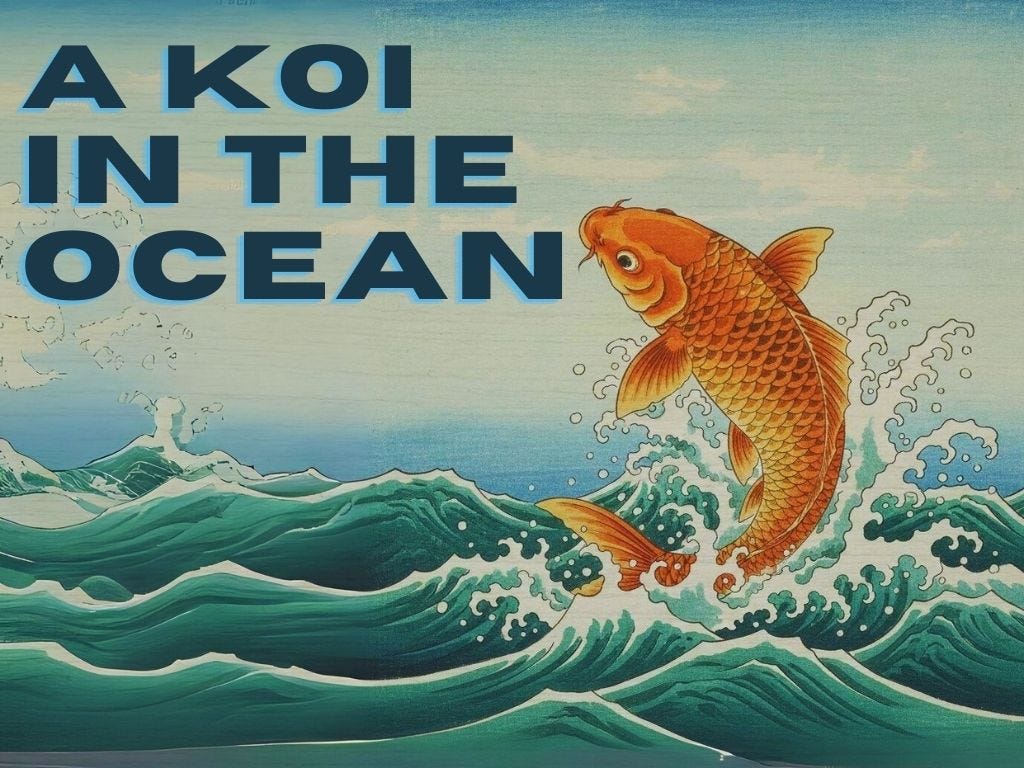
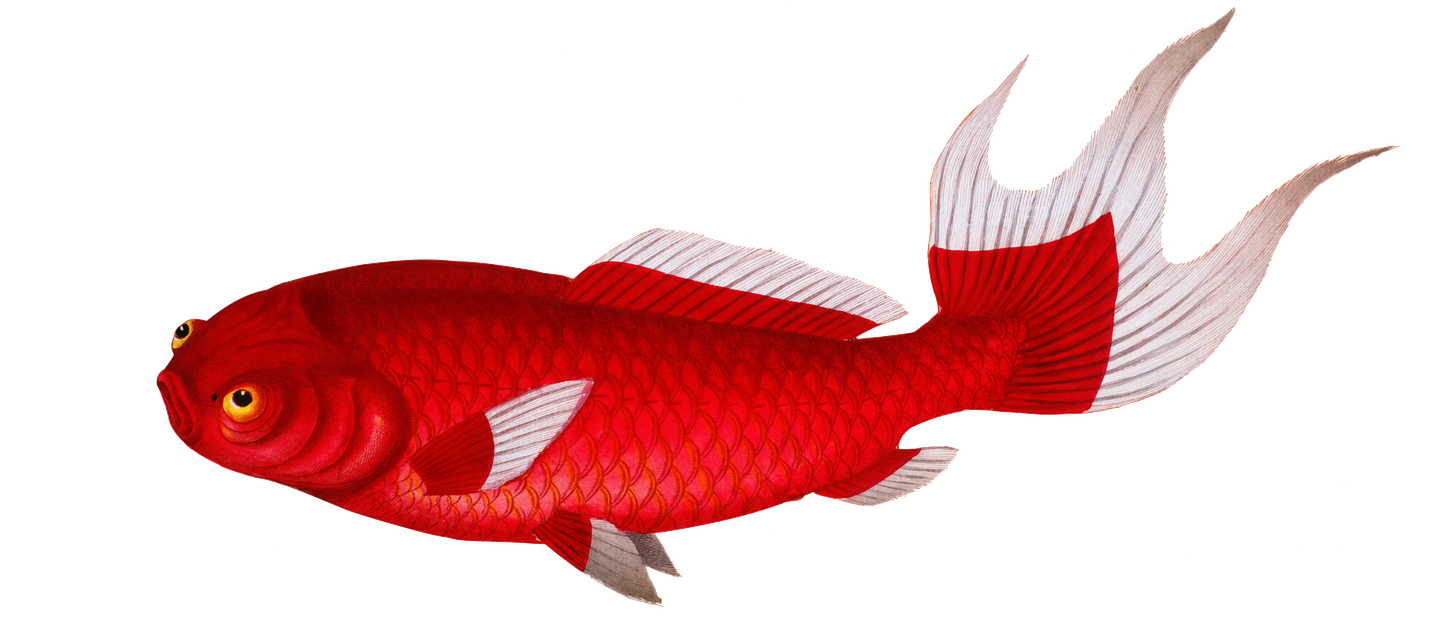


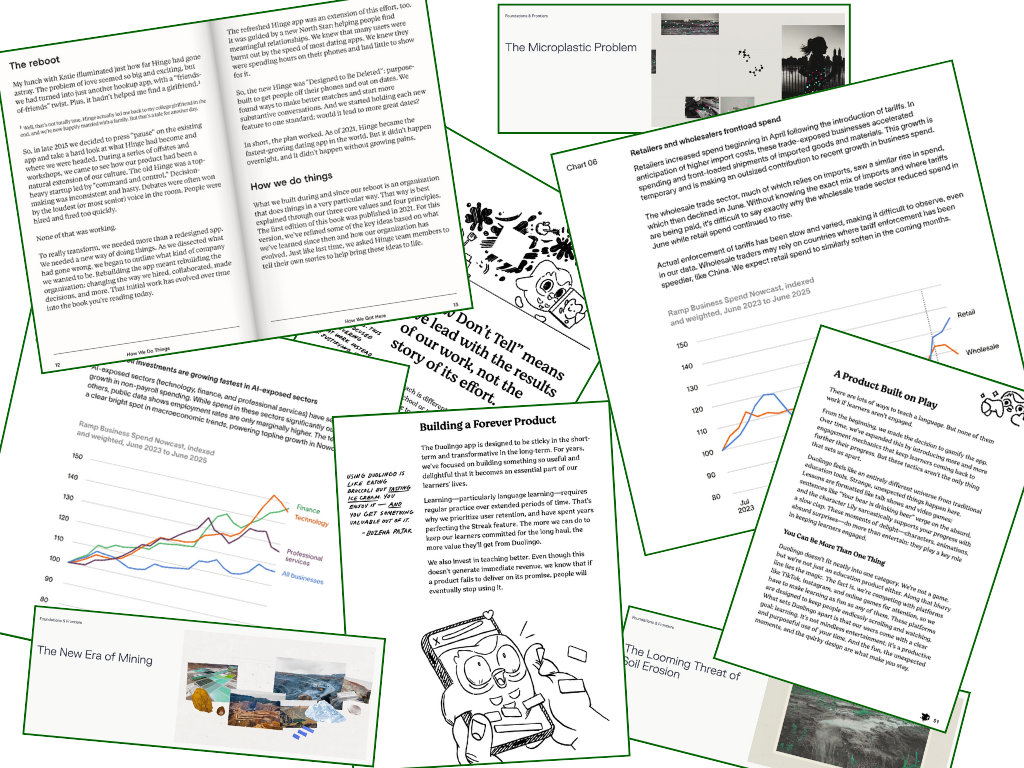
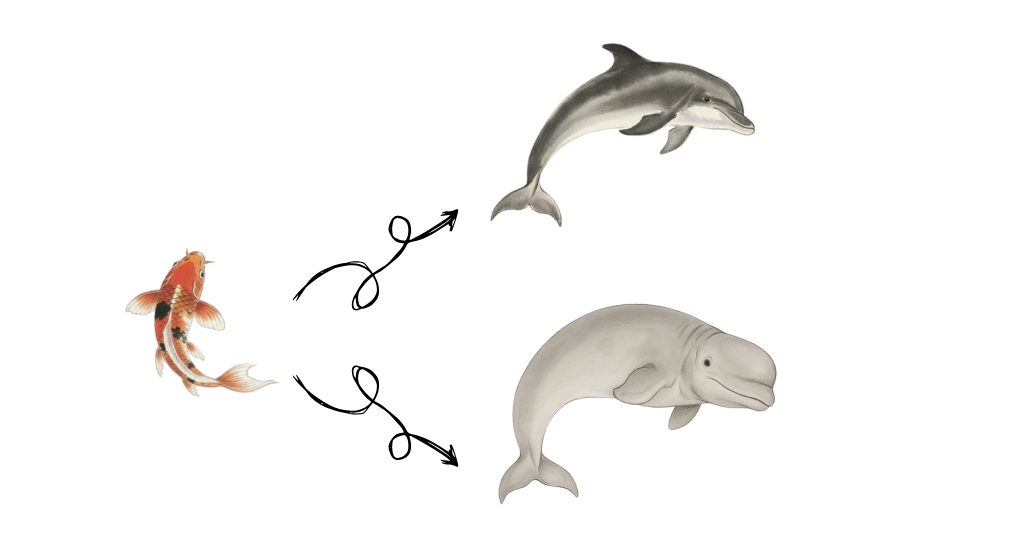
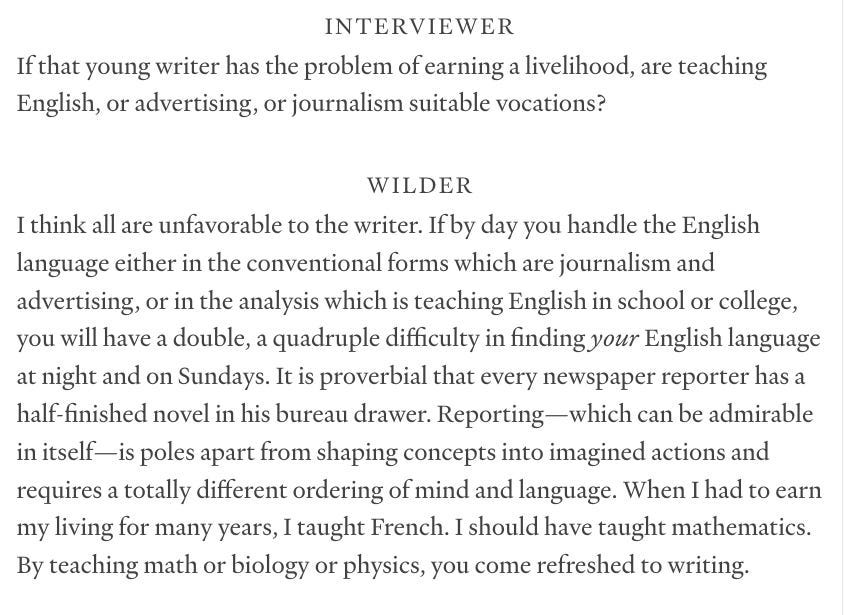
Arggh. Feeling you here in this messy volatile realm Camilo. I suspect there might be other opportunities or categories of work that don't appear on the radar because they're one-off custom roles for good writers that you won't even know exist until you stay the course long enough to have one drop into your lap. But maybe not. The ChatGPT gig sounds like a living hell. Koi Vey. But . . . dolphins are assholes??!! What? How? My week might be ruined.
Your unapologetic attack on dolphins may cause a cultural war. Yet, I do want to highlight the most powerful statement (for me) is “to keep swimming”. You got this!